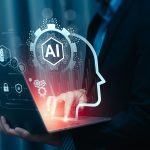
McKinsey & Company is undergoing what senior leaders have called an “existential transformation” as artificial intelligence reshapes the consulting industry, according to The Wall Street Journal.
For nearly a century, McKinsey has held a dominant position in corporate consulting, known for shaping CEO decisions and offering strategic counsel. But with AI advancing rapidly, the firm now faces disruption to the very model it helped popularize.
“Existential transformation”
Inside McKinsey, conversations about AI are no longer just speculative. The firm is in the middle of what its leaders are calling an “existential transformation.” That phrase came directly from Kate Smaje, a senior partner leading the company’s AI efforts, who told the Journal, “Do I think that this is existential for our profession? Yes, I do.”
To support this shift, McKinsey has deployed around 12,000 AI agents. These tools assist consultants with tasks like drafting PowerPoint decks, summarizing client interviews, and even writing in the firm’s tone. A frequently used agent is designed to assess the logical structure of consultant recommendations.
“We’re going to continue to hire, but we’re also going to continue to build agents,” said McKinsey’s global managing partner Bob Sternfels, as quoted by the Journal.
Despite assurances that AI won’t replace employees, recent staffing trends indicate otherwise. Since 2023, McKinsey’s headcount has declined from 45,000 to 40,000 — partially due to a post-pandemic adjustment that included layoffs and natural attrition.
Fewer ‘suits with PowerPoint,’ more practical help
The impact of AI isn’t just inside consulting firms; it’s also shifting what clients want. According to Oliver Wyman CEO Nick Studer, “The age of arrogance of the management consultant is over now.” Speaking with the Journal, he said, “Companies don’t want a suit with PowerPoint. They want someone who is willing to get in the trenches and help them align their team and cocreate with their team.”
Clients today expect more than strategic advice; they want help in implementing changes, training staff, and managing transitions. At McKinsey, roughly 25% of client work now falls under “outcomes-based” models, where the firm gets paid based on results, not just recommendations.
AI now accounts for 40% of McKinsey’s revenue according to the Journal, making it one of the firm’s fastest-growing areas. But that growth brings pressure. Junior consultants, once essential for tasks such as data analysis and slide creation, are now seeing their roles threatened by bots that work faster and never rest.
WebProNews reports that the firm’s AI tools have boosted productivity by up to 30%, while enabling senior staff to focus on high-value tasks. One such tool, “Lilli,” handles everything from research to strategy formulation in minutes, work that used to take days.
Elon Musk chimes in: ‘AI can’t replace the blame game’
Not everyone believes AI can fully take over consulting roles. Tech billionaire and xAI CEO Elon Musk recently weighed in on X, writing, “Some say that the main reason corporate CEOs use consultants is to have an ‘objective third-party’ confirm the decision they were going to make anyway and have someone else to blame if it goes wrong.” He added: “AI can’t replace that yet.”
Musk’s comments suggest that, in many cases, consultants serve more as political buffers than decision-makers. That human nuance, understanding company culture, boardroom politics, and interpersonal dynamics, may still be out of AI’s reach.
As McKinsey prepares for its centenary celebrations in Chicago this October, the firm will reflect on its past, but more importantly, confront a future where AI is deeply intertwined with its survival.
AI may cut costs — but at what cost? Explore the aftermath of layoffs driven by automation, and the growing chorus of leaders admitting they got it wrong.





